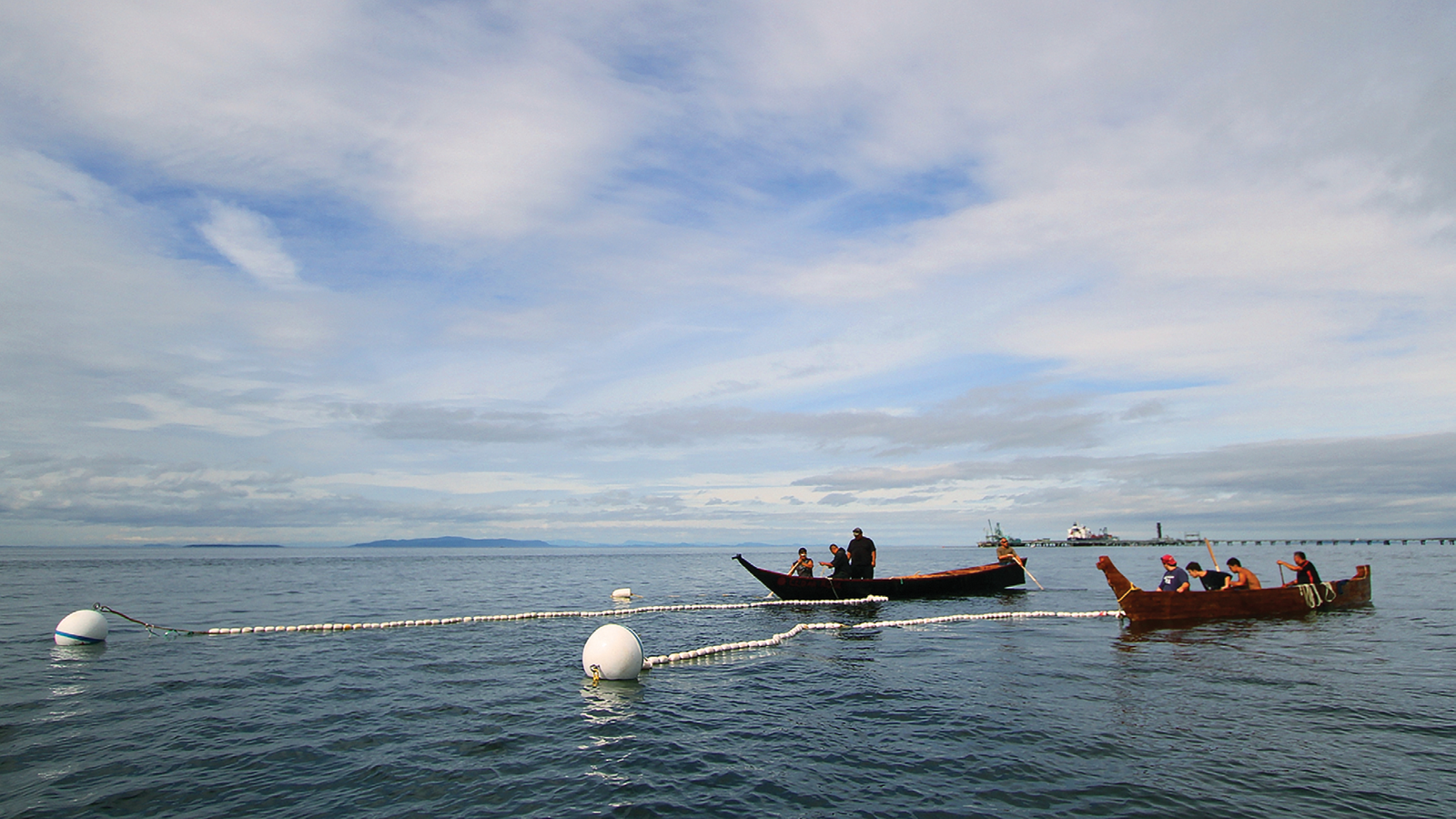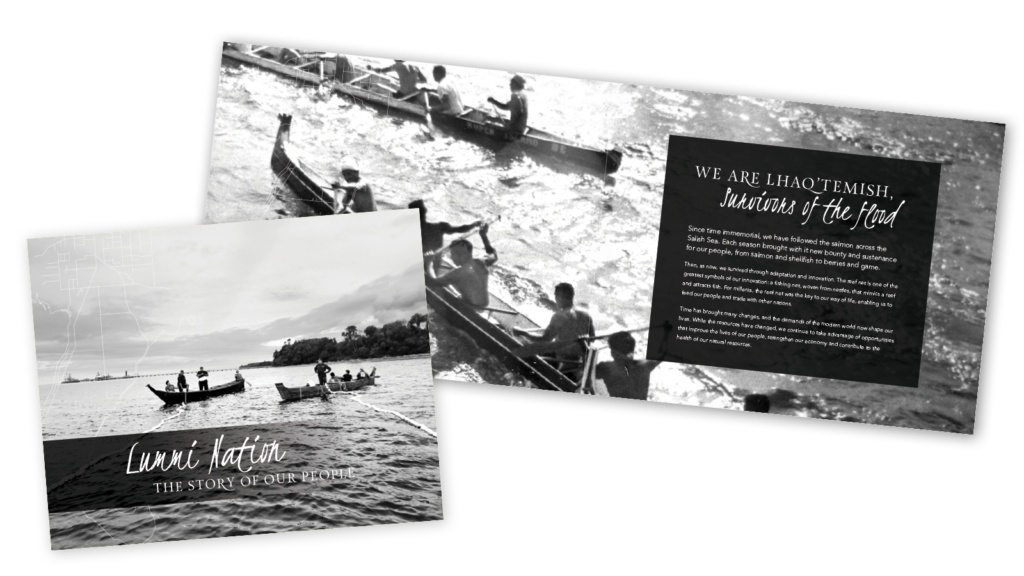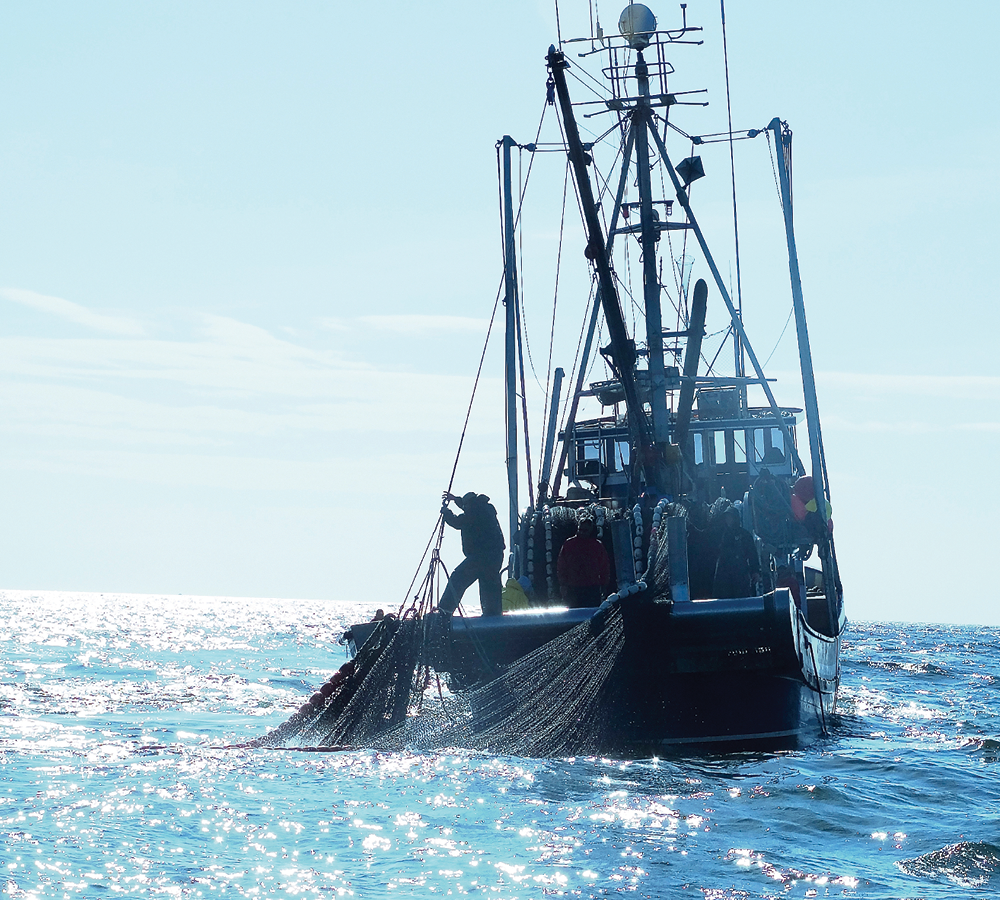Extensive research and hundreds of comments from tribal fishers revealed there was no way to mitigate the effects of the terminal on Lummi’s treaty rights. In response, the tribe and its allies launched a successful, comprehensive campaign that included outreach to tribal and community members, elected officials, and agency leaders, as well as media relations. Many groups and elected officials opposed the coal shipping terminal because of the environmental impacts to the region, but only Lummi could assert treaty rights over the proposed site. The local and national dialogue changed because Lummi’s message remained consistent and focused on the need to protect treaty rights.
Treaty rights prevail for Lummi Nation

Media, messaging, and outreach for Lummi Nation
There is a Lummi saying that “when the tide is out, the table is set.” The saying refers to the opportunity to harvest shellfish and draw from the bounty of the sea. As Lummi Nation leaders will tell you, fishing is an integral part of their schelangen, their way of life. So when SSA Marine proposed to build North America’s largest coal-export terminal in Lummi’s fishing waters, the tribe spent years researching the effects of a terminal on its fishing rights.
A focused message

Building a coalition
The proposal to build a coal terminal brought together the community. Lummi and nine other tribes established an alliance to bring the importance of treaty rights to the national stage. On November 5, 2015, tribes stood together in our nation’s capital to call on Congress to honor the treaties and protect Cherry Point. The power of the united tribes brought national attention to the coal proposal and sent a strong message to elected officials and the Corps. A total of 661 news outlets covered the issue, reaching nearly 1 billion potential readers.



Treaty rights prevail
On May 9, 2016, the U.S. Army Corps of Engineers denied the permit at Cherry Point because of the impact it would have on Lummi’s treaty rights. In its 34-page record, the Corps even pointed to the fact that Cherry Point is important to Lummi’s schelangen.
In addition to the favorable ruling, Lummi garnered broad and ongoing support from tribal members, elected officials, and third-party allies, including a coalition of tribes, businesses, and conservation and faith organizations. The tribe also now enjoys stronger relationship with news outlets and reporters. The results of the Corps’ historic decision will resonate throughout Indian Country, as other tribes face similar battles to protect their treaty resources and ways of life.